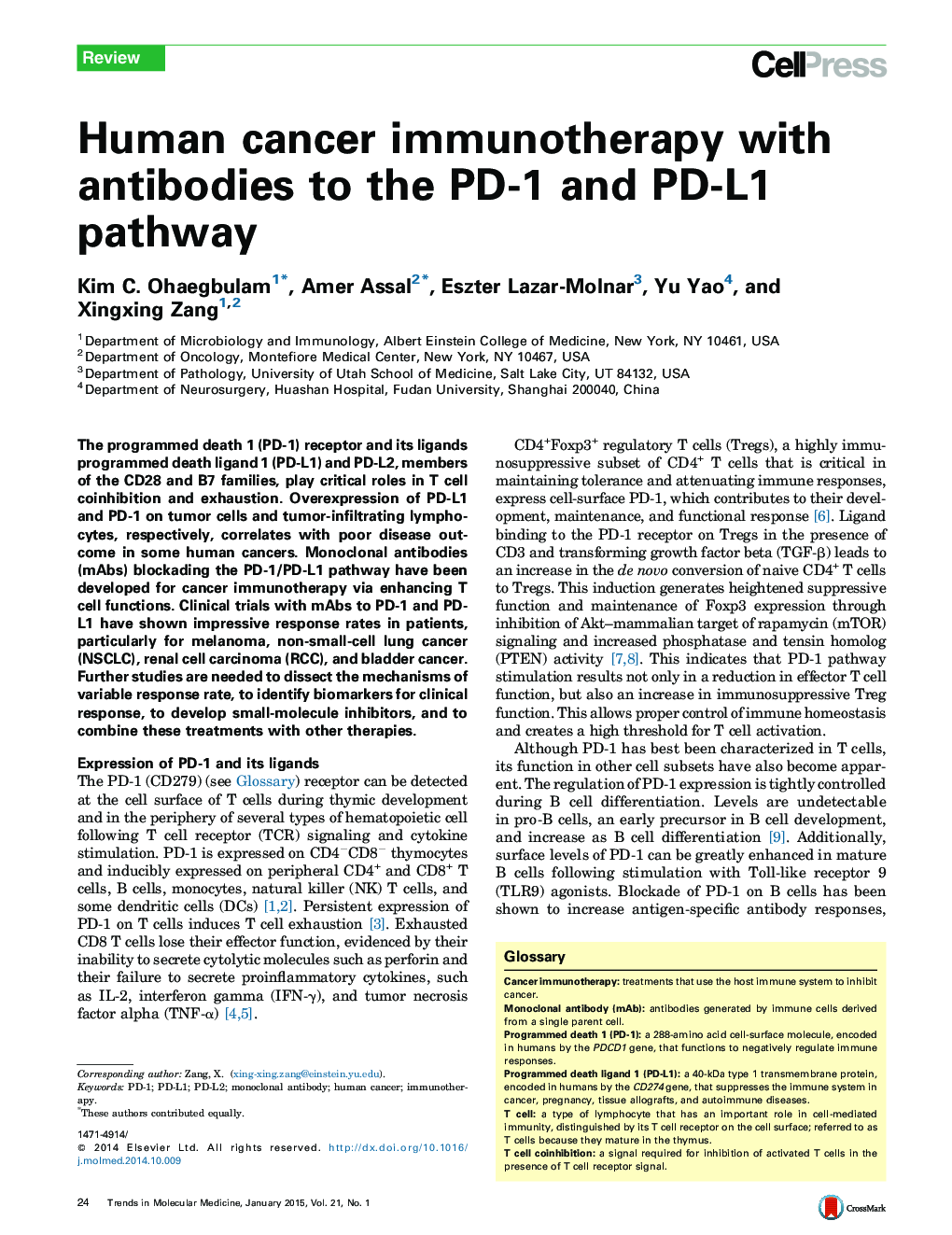| Article ID | Journal | Published Year | Pages | File Type |
|---|---|---|---|---|
| 2838424 | Trends in Molecular Medicine | 2015 | 10 Pages |
•The PD-1/PD-L1 pathway inhibits T cell functions.•The PD-1/PD-L1 pathway functions as immune evasion in some cancers.•Clinical trials targeting PD-1 and PD-L1 show impressive response rates.
The programmed death 1 (PD-1) receptor and its ligands programmed death ligand 1 (PD-L1) and PD-L2, members of the CD28 and B7 families, play critical roles in T cell coinhibition and exhaustion. Overexpression of PD-L1 and PD-1 on tumor cells and tumor-infiltrating lymphocytes, respectively, correlates with poor disease outcome in some human cancers. Monoclonal antibodies (mAbs) blockading the PD-1/PD-L1 pathway have been developed for cancer immunotherapy via enhancing T cell functions. Clinical trials with mAbs to PD-1 and PD-L1 have shown impressive response rates in patients, particularly for melanoma, non-small-cell lung cancer (NSCLC), renal cell carcinoma (RCC), and bladder cancer. Further studies are needed to dissect the mechanisms of variable response rate, to identify biomarkers for clinical response, to develop small-molecule inhibitors, and to combine these treatments with other therapies.
